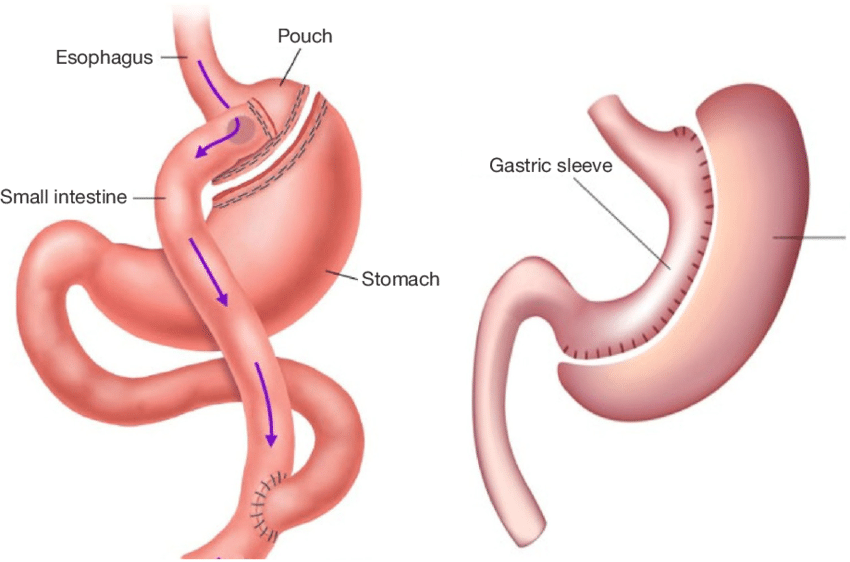Lapsurgery.com.au, Weight Regain After Bariatric Surgery Causes, Prevention, and Management – Bariatric surgery, such as gastric bypass, sleeve gastrectomy, and adjustable gastric banding, is a highly effective treatment for severe obesity. It not only leads to significant weight loss but also improves or resolves obesity-related conditions like diabetes, hypertension, and sleep apnea. However, weight regain after bariatric surgery is a growing concern for both patients and healthcare providers. Understanding its causes, prevention strategies, and management options is crucial for long-term success.
Causes of Weight Regain

Weight regain after bariatric surgery can occur for various reasons, often stemming from a combination of biological, behavioral, and psychological factors:
Anatomical and Physiological Changes
Over time, the stomach pouch or sleeve may stretch, allowing patients to consume larger portions of food. Additionally, changes in gut hormones that initially suppressed hunger may diminish, leading to increased appetite.
Dietary Habits
Poor adherence to dietary guidelines is a common cause of weight regain. Grazing, eating calorie-dense foods, or consuming excessive liquid calories can counteract the effects of surgery.
Physical Inactivity
A sedentary lifestyle can slow metabolism and contribute to weight regain, especially if caloric intake is not adjusted accordingly.
Psychological Factors
Emotional eating, stress, depression, or unresolved psychological issues can lead to overeating. Without addressing these underlying factors, patients may revert to old habits.
Lack of Follow-Up Care
Patients who do not regularly attend follow-up appointments may miss valuable support, including guidance on nutrition, exercise, and behavioral changes.
Prevention Strategies
- Lifestyle Changes: Adopting long-term healthy eating habits and a regular exercise routine is essential. Patients should focus on consuming protein-rich, low-calorie, and nutrient-dense foods while avoiding processed or sugary items.
- Behavioral Therapy: Working with a psychologist or counselor can help address emotional eating, stress management, and other psychological factors that may lead to weight regain.
- Regular Follow-Up: Attending follow-up appointments with the bariatric care team ensures continuous support and monitoring. This helps identify potential issues early and provides opportunities to adjust treatment plans.
- Support Groups: Joining bariatric surgery support groups can provide motivation and shared experiences from others who have undergone similar procedures.
Management Options for Weight Regain
If weight regain occurs, patients and healthcare providers can explore several strategies:
- Revisiting Nutritional and Exercise Plans: A dietitian can reassess the patient’s dietary habits and create a personalized nutrition plan. Similarly, a physical therapist or fitness trainer can recommend an appropriate exercise regimen.
- Medications: Certain weight-loss medications may be prescribed to help manage appetite and reduce caloric intake.
- Endoscopic Procedures: For some patients, endoscopic treatments, such as gastric balloon placement or pouch resizing, can help reduce stomach volume and improve weight loss.
- Revisional Surgery: In cases of significant anatomical changes or severe weight regain, revisional bariatric surgery may be considered. However, this option carries higher risks and should be carefully evaluated.
Remember, bariatric surgery is not a stand-alone solution but rather a powerful tool that requires lifelong commitment to lifestyle changes. Patients should stay proactive by regularly evaluating their progress and seeking support when challenges arise.
Key Takeaways
Early Intervention is Crucial: Addressing weight regain early can prevent more significant issues later. Stay vigilant for changes in habits or weight trends and act quickly.
- Consistency Over Perfection: Small, sustainable changes to diet, exercise, and mental health practices are more effective than drastic, short-lived efforts.
- Holistic Support Matters: Combining medical care, mental health support, and peer encouragement leads to the best outcomes.
- Self-Compassion is Key: Avoid guilt or self-blame if weight regain occurs. Instead, focus on what can be learned and the steps you can take to move forward.
Conclusion
Ultimately, success after bariatric surgery requires a partnership between the patient and their healthcare team. With proper education, ongoing support, and a commitment to change, weight regain can be managed effectively, allowing individuals to enjoy a healthier, more fulfilling life post-surgery.

